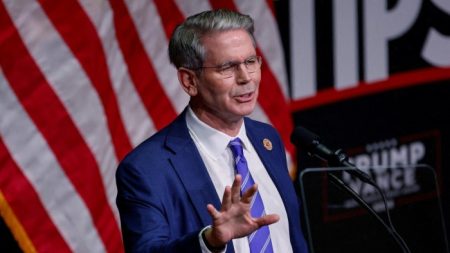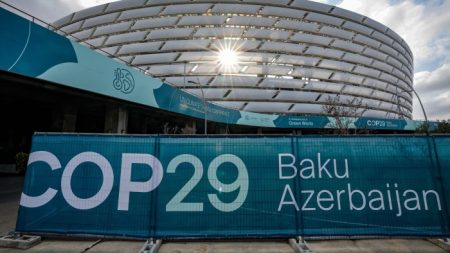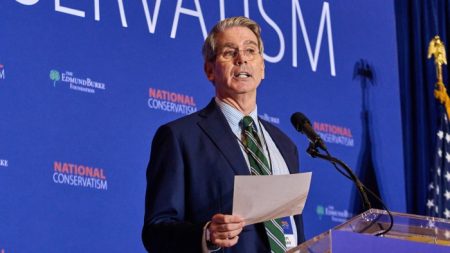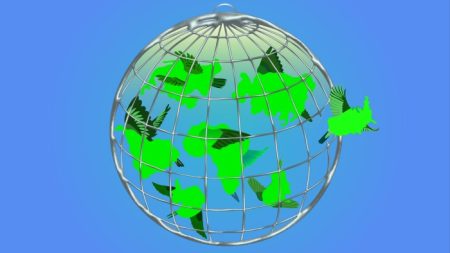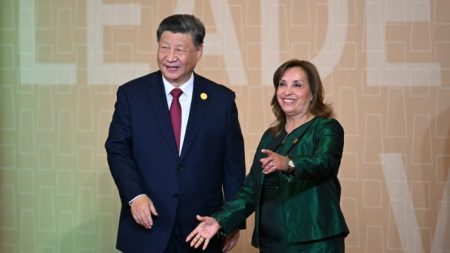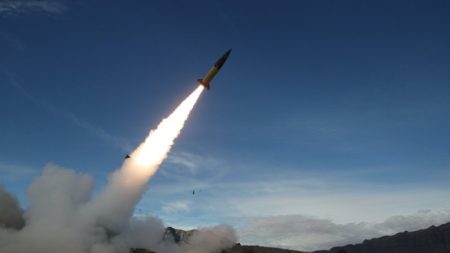Banned from Summer Olympics that were once a national obsession, Russia has prepared its response: a wave of disinformation, cyber attack threats and the staging of its own “fake games”.
The push to retaliate against Moscow’s isolation over doping scandals and the invasion of Ukraine underlines the enduring sensitivity of the Olympic Games, which President Vladimir Putin once used as an opportunity to mark the country’s progress.
Russia recorded its biggest ever medal haul when hosting the Winter Olympics in Sochi just a decade ago, with Putin attempting to boost his reputation by releasing political prisoners and welcoming everyone “regardless of their sexual orientation”.
By contrast only 15 athletes from Russia will attend the Paris Games, competing under a neutral status.
“Russia’s changing attitude towards the Olympics mirrors its broader trajectory,” said Dmitry Navosha, co-founder of Sports.ru, a leading sports website. “In 2014, Russia saw itself as part of the western world. Now, it has reverted to a cold war stance — only this time, the war isn’t just cold.”

To compensate for its exclusion from the world’s major sporting events, Russia has turned to inventing its own competitions.
The Brics Games, held late last month, attracted only a few thousand athletes as its emerging peers Brazil, India, China and South Africa and dozens of other countries sent small squads. Russia’s isolation was powerfully symbolised when synchronised swimmer Alexandr Maltsev, the sole competitor in the freestyle programme, received his gold medal while standing alone on the podium.
Many athletes are not taking the local competitions seriously. “It is complete nonsense to compare the Brics Games with the Olympics. The emotions at the Brics Games? None at all,” sprinter Kristina Makarenko told Russian media after her victory in the competition.
Spectator interest was limited too. Navosha said Russians’ keen interest in global sporting competitions would not change overnight “just because the officials swung in a different direction”.
Moscow also postponed its so-called Friendship Games, which were due to be held in September and were billed as Russia’s big answer to the Olympics, until next year. The name harks back to the 1984 event that the USSR held during its invasion of Afghanistan, when eight other Eastern Bloc states joined its Olympics boycott.
This time around, Russia’s allies are more inclined to exploit commercial ties with Moscow “than to openly ally with it at the expense of all other relations”, said Navosha, who sold his Russian business in 2021 and now runs an international football website.
Locked out of the Olympics, Moscow has been building up a disinformation campaign about the Paris games. Tech group Microsoft warned Russian influencers were deploying artificial intelligence to “denigrate the reputation of the [International Olympic Committee]” and “creating the expectation of violence” at the tournament. The Kremlin dismissed the report as “absolute slander”.
The US state department’s diplomatic security service also highlighted the risk of potential cyber attacks by Russia during the Games, citing a hacking campaign during the 2018 South Korea Olympics.
Moscow now has “10 times more reasons” to attack the games, it added.
The Russians competing under a neutral flag include seven tennis players, three cyclists, three canoeists, a swimmer and a trampolinist, nearly half of whom train abroad, according to the IOC.
They are barred from group events or wearing the Russian flag and must not show support for Russian’s invasion of Ukraine, including via media statements.
Global Rights Compliance released evidence last week showing more than two-thirds of Russian neutral competitors had broken Olympic rules by publicly supporting the Ukraine war. The Hague-based rights group claimed the IOC, which opted against a blanket ban on Russians competing in Paris, had “ignored” the findings.
The report highlighted pro-war social media content that was liked by cyclist Alena Ivanchenko and tennis player Elena Vesnina, including posts questioning Ukraine’s right to exist and celebrating Russia’s “military feats”.
France’s Élysée Palace said the “very low” number of Russians at the Olympics proved the IOC’s assessment had been “carried out thoroughly”.

Putin has stressed that Olympic participation was a “personal decision” for each athlete. Last September Russia’s then sports minister Oleg Matytsin said about 180 Russians could participate as neutrals.
But many of the country’s sports officials, led by the Russian Olympic Committee, adopted a more radical stance.
“We stand with the athletes who choose [the Russian] side of the barricades,” ROC president Stanislav Pozdnyakov wrote on his Telegram channel, referring to those going to Paris as the “foreign agents team”.
Umar Kremlev, the Russian president of the International Boxing Association, went further, calling them “traitors” who had “better not come back”.
The ROC offered compensation to those who have boycotted the Paris Games. By early July, it had paid about Rbs200mn ($2.2mn) to more than 240 athletes.
While the US diplomatic security service said “the Olympics holds a special place for the Russians”, Moscow has gone to great lengths to suggest it was indifferent to the event. In March, Putin “completely agreed” with an athlete’s suggestion that without Russia’s involvement the Games were mere “provincial competitions”.
Russian television will not broadcast the Olympics for the first time in 40 years, arguing they are “not interesting” to Russians without “most of their athletes, the anthem and the flag”.
But Navosha disputed this, pointing out that when Russians previously competed under a neutral status, such as at the 2018 Winter Olympics in South Korea, “the broadcasts have always been very popular”.
Additional reporting by Leila Abboud in Paris and Sara Germano in New York
Read the full article here




